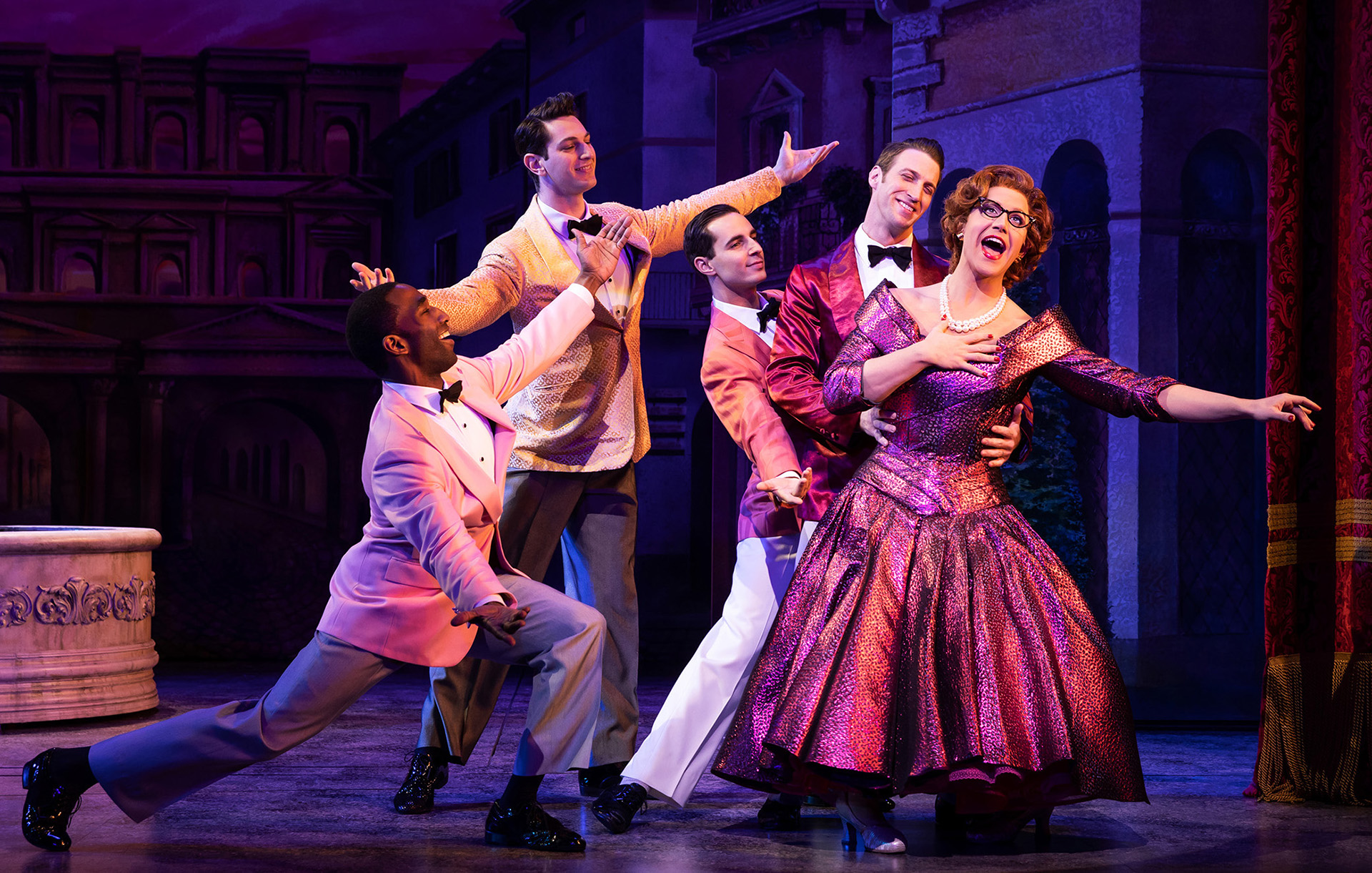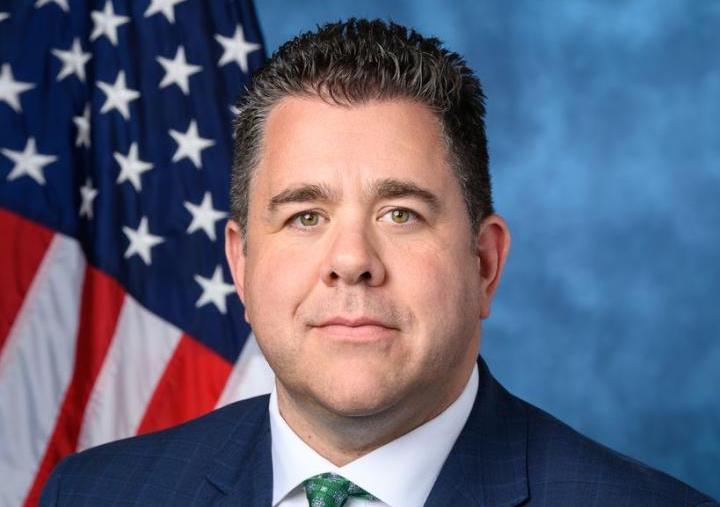Playing ‘Tootsie’

Thanks to David Yazbek’s score, “Tootsie” gives us the whoosh that sets our abandon in motion. Even the show’s slapstick gags (book by Robert Horn) cause us to swoon, after a while.
Of course, we’re in the presence of a mastermind event, spearheaded by Dorothy Michaels, otherwise known as the cross-dressing Michael Dorsey. As you know, that’s Tootsie, the Dustin Hoffman role in the 1982 movie, portrayed in this Broadway premiere by Santina Fontana.
In this role, Fontana exceeds his already awesome reputation as a leading man. As Dorothy, he’s adorable and fierce. He fires the show with energy and enthusiasm. And he is a swashbuckling tenor.
As his roommate/comic sidekick, Andy Grotelueschen keeps us on our toes. Quick and dynamic, he brings his own comic turn to the role Bill Murray created on screen (without credit, by the way).
Playing Dorothy’s love interest, Lilli Cooper delivers the romcom role with gusto, and musical chops that can get downright sultry. Still, as Michael Dorsey’s jilted best girlfriend Sandy Lester (oy, what a gender twist), Sarah Stiles is the quirkiest.
The most outré character, however, is the director of the Broadway musical in which Dorothy stars. He’s played by Reg Rogers as a twisted, gutted, quivering tyrant. In addition, stage stars Julie Halston (the show’s producer) and Michael McGrath (Michael Dorsey’s agent), masters of comedy, put a new hat on a classic film, and a tale as old as “Cinderella.”
But it’s the music and the lyrics that carry this aspirational tale set in New York City, about a young man’s dream of becoming an actor. Yazbek’s musical compositions are “textbook Broadway” to borrow a phrase from the show’s pretentious director. The fact is, the show has a colorful oom-pah beat, that is fast paced and sounds like the next generation . . . or the last, of elevator music.
Having crafted scores for shows like “The Full Monty” and “Woman on The Verge of A Nervous Breakdown,” Yazbek has ample experience with probing material. The beauty of “Tootsie’s” lyrics is in the off-hand, throw-it-away manner that they are crafted.
Take Sandy’s solo, all one sentence and performed with breathless urgency. Here’s an excerpt, “So I won’t have any breakfast, maybe just a little tea, like when you have to go and get a colonoscopy which incident’lly isn’t half as disconcerting or upsetting as going for a part you know there’s no way that you’re getting.”
Book writer Robert Horn lifts the movie’s humor, which targeted the second wave of feminism, into a contemporary #MeToo tale. The change in tenor is less about the issues women face today, versus then, but in the societal awareness of those issues, and how they are addressed.
Director Scott Ellis pulls off a giddy, fast-paced romp. Along with David Rockwell’s staging — Manhattan skyscrapers that look like they’re made of papier mache — the show is wonderfully playful and uplifting.
‘Hadestown’
A highly lyrical, sung through musical, “Hadestown” sets us on the road to hell, where we examine and reexamine an old story, the myth of Orpheus and Eurydice. “It’s an old song,” but this time the moral hangs on a dystopian, socialist worldview.
Embodying the mythical god, Hades, Patrick Page speaks and sings deep in the lower ranges. At times, his guttural sound evokes the existential crooning of Leonard Cohen, but Hades’ rants are truly exposés on evil. As he puts it, “You hear that heavy metal sound? The symphony of Hadestown, and in this symphony of mine are power chords and power lines.”
In contrast, Eurydice, as portrayed by Eva Noblezada, is a pixyish young woman, with the wispy voice of a balladeer. We first meet her hanging out in a café with a bunch of folks, singing about hard times. Eurydice complains of hunger and homelessness. In spite of herself, she falls in love with Orpheus, a poor boy with a gift. “He could make you see how the world could be in spite of the way that it is.”
But such gifts pale in the presence of the mighty King Hades who arrives, under the gathering storm of Eurydice’s despair and deprivation, luring her into the underworld with false promises. The rest is the same “old tale from way back when.” Try as Orpheus does to alter the tragic ending to their romance, and beyond that to take what is wrong, and right it, he fails.
In this role, Reeve Carney (“Spider-Man Turn Off the Dark”) demonstrates a superhero’s instinct. Even though his physical appearance is tragically frail, his poetic and musical soul elevates him in our minds.
Hades, on the other hand, prevails, building walls to protect his city and keep him free. “The wall keeps out the enemy,” he sings, explaining that the enemy are the “have nots,” who threaten him because they want the wealth he so greedily possesses.
Written and composed by Anais Mitchell, “Hadestown” is an ineffable kind of storytelling that challenges where our stories come from, if not from ourselves. As Hermes, the god who is light of foot, the septuagenarian Andre De Shields reminds us, we can’t alter the old story, revise the archetypes, or deny the truth told in fiction. What is within our means, is the ability to change our lives based on the knowledge we’ve now obtained from listening to the story.
Directed by Rachel Chavkin, this musical is something of an epic undertaking, as it takes us on the railroad from Earth to Hades, morphing mythology with contemporary life. It’s beautifully conceived, executed, and staged in a most unusual way.



